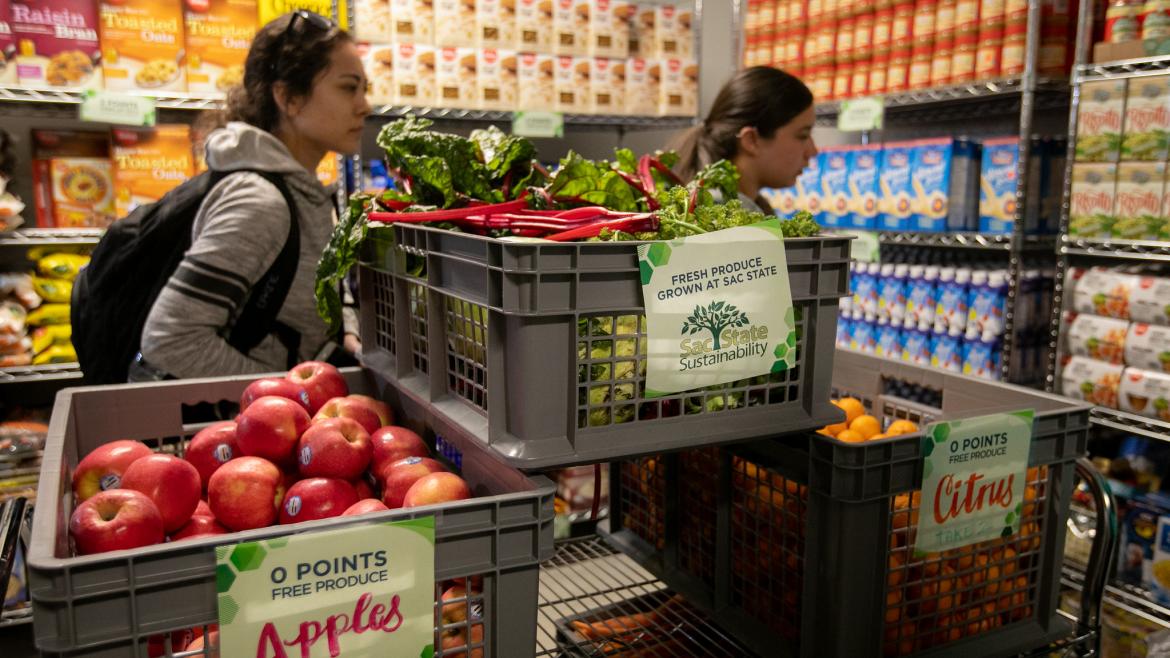Almost two in five Utah college students are food insecure. That’s according to a study that was released this week.
As a college student who has experienced and witnessed this hardship, I know what a foundational difference these programs can make in the lives of people who are just beginning their academic and professional lives.
When we talk about poverty, hunger, and homelessness, college students and young adults are not often centered in the conversation. However, researchers have documented growing economic insecurity for this demographic. A look at more than 167,000 college students from 227 institutions in 2020 found that 39% were food insecure, 46% were housing insecure, and 17% were considered homeless. The COVID-19 pandemic exacerbated these trends.
As a college student myself, I witness this struggle firsthand. Many of my peers rely on the basic amenities provided by institutions—such as dorm housing—and food pantries to get through the academic year.
Two critical pieces of pandemic relief legislation, the 2020 CARES Act (Public Law No: 116-136) and the 2021 American Rescue Plan (Public Law No: 117-2), temporarily relieved the financial burden of millions of students struggling to endure during lockdown restrictions. As those provisions expire, inflation and the cost of living have increased, making life for many young adults increasingly precarious.
Pandemic Aid Extended Temporary Relief to Young Adults
The American Rescue Plan provided limited but equitable support to reduce the financial burden of the pandemic. ARP made programs such as the Supplemental Nutrition Assistance Program (SNAP, formally food stamps) temporarily available to young adults and college students. It also reduced the age limit of the Earned Income Tax Credit from 25 to 19 for the 2021 tax year and increased the credit from $538 to $1,502. This benefited more than 17 million working adults, including those without children.
The need for these benefits was and remains substantial. Yet such programs are rarely discussed or used on college campuses, so many potential beneficiaries do not know that help is available. In 2018, the Government Accountability Office estimated that approximately 2 million students in 2018 were unaware of their eligibility for SNAP benefits.
Unfortunately, just as students like me were learning about SNAP and EITC eligibility, expanded access to these programs expired. Economic insecurity is not going away, and more must be done to ensure these supports are available to young adults. Research must be conducted and shared to understand the effects of these benefits on poverty among young people.
Benefits of Permanently Enabling SNAP and EITC Assistance
Permanently extending SNAP benefits to young adults and college students will minimize the number of students affected by food insecurity and give students more resources to deal with rising inflationary prices. On campus, SNAP benefits could help those struggling to afford food and free up resources that can be allocated to other bills and school supplies.
Congress should take steps to make EITC and SNAP provisions permanent to address the growing poverty rates among young Americans.
Similarly, permanently expanded EITC eligibility would ensure that students and other low-wage workers ages 19-24 have access to cash benefits to combat the rising inflation prices, save money, pay bills, and tackle the additional financial burdens of school and life. Without it, many young adults will again be ineligible and fall into poverty.
As a college student who has experienced and witnessed this hardship, I know how effective these programs are and what a foundational difference they can make in the lives of people who are just beginning their academic and professional lives. Congress should take steps to make EITC and SNAP provisions permanent to address the growing poverty rates among young Americans.


